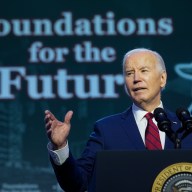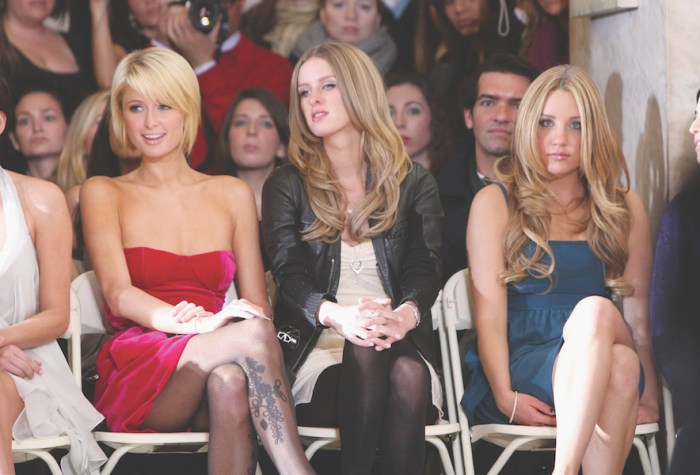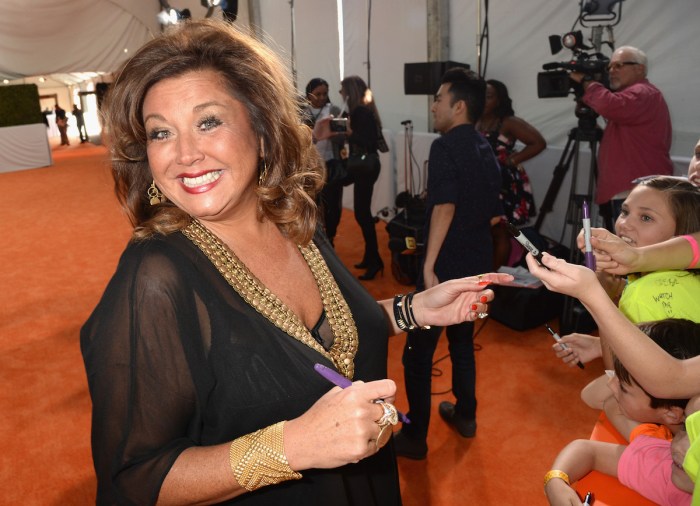Riding the momentum of Sunday’s People’s Climate March, more than a thousand protesters filled Broadway in lower Manhattan on Monday, shutting down traffic.
Flood Wall Street protesters started the morning in Battery Park, with speakers and “non-violence direct action training.” Just before noon, the march started with their path set on Wall Street, which the NYPD had already blocked off with barricades.
Instead, the protesters sat down in the middle of Broadway near the Charging Bull statue, and cheered, drummed and sang.Protesters climbed on the outside windowsills of buildings, unveiling their banners. A human microphone advised the demonstrators to remain seated in the streets, to not let traffic through.
By early afternoon, the police barricades set up to separate the street and sidewalk came down, with activists pulling them open and yelling “let the people in.”
By 2 p.m., the masses got hungry, and organizers put out a call for pizzas to be delivered in front of 26 Broadway. Around 4 p.m., the protesters moved toward Wall Street.
Moumita Ahmed, 24, who studied environmental science at SUNY Stony Brook, said she was prepared to be arrested.
“This is so important, I’m literally emotional,” Ahmed said, adding it was “beautiful” to see the number of people who cared enough about the cause to assemble and face arrest.
“Capitalism is the core of all climate change, and an obstacle toward change,” said Ahmed, who is from Bangladesh, considered one of the top countries at risk for the effects of climate change.
Matthew McHale, 31, said he traveled to New York from the San Francisco Bay area for Sunday’s climate march.
“I’ve been an environmentalist since I went one my first backpacking trip when I was 1 year old,” McHale said. “When did I start waking up? It was about 10 years ago, that this was more than just, you know protecting the trees … this is a systemic thing that threatens all of humanity, and half or more of all living things on this planet. And we are the ones who can stop it.”
McHale, who recently graduated from seminary school, said he left politics for the ministry because he wanted to “live out” his “values” in daily life.
“Most people don’t have that luxury, that’s part of the reason why were here,” McHale said. “People don’t want to be working for Chase Bank giving out money, people don’t want to be working in factory farms under horrible conditions, but the system doesn’t offer alternatives and so that’s why we need … to create a new economy that allows people to thrive and do things that are in line with creating community, justice, equality and beauty.”


















